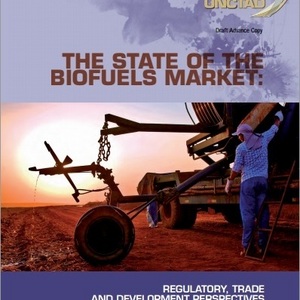UN report outlines growing biofuels role in developing economies




United Nations Conference on Trade and Development
November 13, 2014
BY Sue Retka Schill
Advertisement
Advertisement
Related Stories
Neste and New Jersey Natural Gas have announced NJNG will fuel its medium-duty trucks and associated equipment with Neste MY Renewable Diesel to help reduce greenhouse gas (GHG) emissions.
Meridian Energy Group Inc., the developer of a proposed greenfield oil refinery in Belfield, North Dakota, on April 16 announced that the facility will have the ability to co-process up to 4,000 barrels per day vegetable oil.
The U.S. Department of Energy is advancing ambitious decarbonization targets for the maritime transportation sector, both domestically and internationally at Singapore Maritime Week by teaming with over 15 government and industry partners.
The International Biomass Conference & Expo was held in Richmond, Virginia, in early March.
A biorefinery in Sweden developed as a joint venture between Nordic energy group St1 and Swedish forest products company SCA on April 10 commenced commercial operations to produce SAF, renewable diesel, and biobased naphtha and LPG.





